10AM-11AM Pacific; 1PM-2PM Eastern
A recap and video of this event is available here.
Climate change is impacting every industry in Nevada and the surrounding area. From public health and the hospitality industry to agriculture and water resources, climate change is fundamentally changing how the state does business and how the military operates in the region. With several new climate mitigation projects underway, how has resilience changed in Nevada? How can key stakeholders, businesses, government facilities, and area military installations collaborate to identify actions, resources, and next steps to prepare for tomorrow’s challenges? Join us our virtual discussion on climate considerations for Nevada.
Opening remarks:
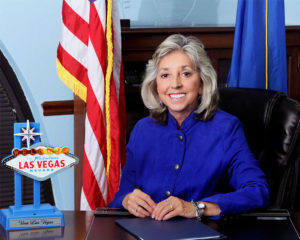
Opening remarks will be made by Congresswoman Dina Titus who currently represents Nevada’s First Congressional District. Currently in her sixth term in the U.S. House of Representatives, Titus is the dean of Nevada’s Congressional delegation. She is a member of the House Committees on Transportation and Infrastructure, Foreign Affairs, and Homeland Security. In 2018, Titus was elected to become the Chair of a key Transportation and Infrastructure Subcommittee, where she works to help Nevada’s communities better respond to natural disasters, address the devastating impacts of climate change, and fight for infrastructure projects that will benefit the most vulnerable.
Panelists include:
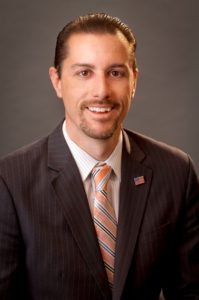 Mr. Kristopher Sanchez, is the Deputy Director for the Nevada Governor’s Office of Economic Development (GOED).
Mr. Kristopher Sanchez, is the Deputy Director for the Nevada Governor’s Office of Economic Development (GOED).
Mr. Sanchez previously held several leadership roles in state government including GOED’s Interim Executive Director and Director of International Trade.
As Deputy Director, Mr. Sanchez is responsible for facilitating economic development opportunities with new and existing businesses, identifying industries and creating strategies to serve entrepreneurial environments to further grow and diversify Nevada’s economic base. He currently manages five divisions within GOED which include: Business Development, Nevada Film Office, International Trade and the Procurement Technical Assistance Centers (PTAC). As Nevada emerges from the COVID-19 pandemic, Mr. Sanchez is leading infrastructure assessment and strategy discussions in southern Nevada.
While serving as Nevada’s Director of International Trade during the Sandoval Administration, he advanced, facilitated, and staffed Governor Sandoval’s international trade missions to 14 countries. Further, Mr. Sanchez led delegations and explored opportunities for Nevada in over 20 countries. In this role Mr. Sanchez was also a member of the Executive Office of the President, Office of the United States Trade Representative Intergovernmental Policy Advisory Committee, and a member of the International Trade Administration, U.S. Department of Commerce, Trade Promotion Coordinating Committee.
Prior to joining GOED, Mr. Sanchez served as a congressional staffer in the United States House of Representatives as a defense legislative assistant for Congressman Jon C. Porter in the 109th and 110th Congress.
Mr. Sanchez is pursuing a Doctorate in Public Policy from the University of Nevada Las Vegas with a focus on developing models that will enhance Nevada state planning and infrastructure development. Mr. Sanchez has earned master’s degrees in Public Administration and Military History from Norwich University, received a bachelor’s degree in Political Science from California State University, Stanislaus and has completed course work in National Security Studies while attending the War College at Fort McNair in Washington D.C.
Mr. Sanchez is a past board member of the Nevada Commission on Tourism and in 2018, the Director of GOED presented Mr. Sanchez with the GOED award for Excellence in Economic Development. Additionally, Poland’s Ambassador to the United States also granted Mr. Sanchez the Amicus Poloniae (Friend of Poland) award in 2017.
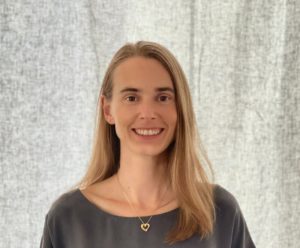
Kirsten Stasio is Executive Director of the Nevada Clean Energy Fund (NCEF), a non-profit organization that accelerates clean energy growth in the state. She has over a decade of clean energy experience across the investment, policy, education, and start-up sectors. Before joining NCEF, Kirsten worked at MAP Energy, an energy investment firm, where she scaled investments in renewable energy across the US. Her early career began in Washington DC at the World Resources Institute (WRI), a non-profit organization, where she worked with policymakers and other stakeholders around the world to implement ambitious climate policy solutions. In her free time, Kirsten serves as an Adjunct Professor at Stanford University where she teaches a course on energy and sustainability to over 200 students each year. She holds MBA and MS degrees from Stanford University and a BA in international relations from the University of California, Davis.
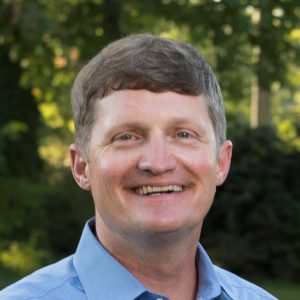 Colonel Dave Belote, USAF (Ret.), ASP Consensus for American Security Member, former Commanding Officer of Nellis Air Force Base.
Colonel Dave Belote, USAF (Ret.), ASP Consensus for American Security Member, former Commanding Officer of Nellis Air Force Base.
Colonel David Belote, USAF (Ret.), is the Managing Partner and CEO of DARE Strategies LLC, helping clients successfully navigate issues at the nexus of renewable energy and national defense. In 2010, Dave founded the Pentagon’s Military Aviation and Installation Assurance Siting Clearinghouse and created the process that allows local officials, industry, and military leaders to assess mission compatibility of a wide range of energy and transmission projects. Dave later served as Vice President for Federal Business at Apex Clean Energy, then advocated for Federal- and state-level energy and defense policy as Senior Vice President of Cassidy and Associates. He has since facilitated the permitting of 36 projects comprising 9.4 gigawatts of wind power while protecting critical military capabilities, including the two largest single-phase wind projects in the US: Apex’s 525-MW Aviator project in Texas and Pattern Energy’s 1050-MW Western Spirit project in New Mexico.
Recognized by the Obama Administration as a White House Champion of Change: Veterans Advancing Clean Energy and Climate Security in 2013, Dave is using his Federal experience to help develop offshore wind projects off both coasts, as well as the SunZia high-voltage transmission project across New Mexico and Arizona.
A retired Air Force colonel and F-16 pilot who earned two Bronze Stars during Operation Iraqi Freedom and served as commander of Nellis Air Force Base, Dave continued his commitment to public service by running (albeit unsuccessfully) to represent his hometown in the Virginia State Senate and currently serves as vice chair of the Virginia Beach Electoral Board. He also serves on the boards of the Southeastern Wind Coalition and Eggleston, Inc. (a non-profit employer of special-needs adults). He is also a five-time Jeopardy! champion.
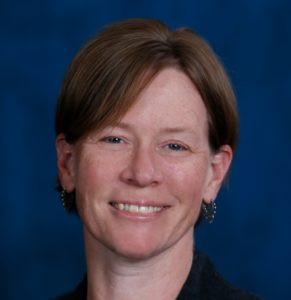
Dr. Tamara Wall is a research professor at the Desert Research Institute in Reno, NV and deputy director of the Western Regional Climate Center. Additionally, Dr. Wall works with the Center for Climate, Ecosystems, and Fire Applications, and is a co-PI of California-Nevada Climate Applications Program (part of the national NOAA-sponsored Regional Integrated Sciences and Assessments network) and the Southwest Climate Science Center Consortium. Dr. Wall has worked extensively with stakeholders in California, Nevada and other regions of the West in co-produced climate science projects. Her research focuses on qualitative and quantitative social science research in climate information use by stakeholders, evaluating co-produced climate science, understanding the process of climate information dissemination and utilization for climate resiliency and adaptation in natural resource management agencies, and public and agency use of fire weather forecasts and fire behavior/fire danger information. Dr. Wall also has extensive expertise and training in organizational development, facilitation, graphic recording, workshop and meeting design, strategic planning, collaboration training and working with both small and large groups in-person and in virtual collaborative settings. Recent work has focused on developing expertise in applying change theory and frameworks to better support mixed research/practitioner teams address the evolving dynamics between research, social processes, and climate change adaptation actions.







